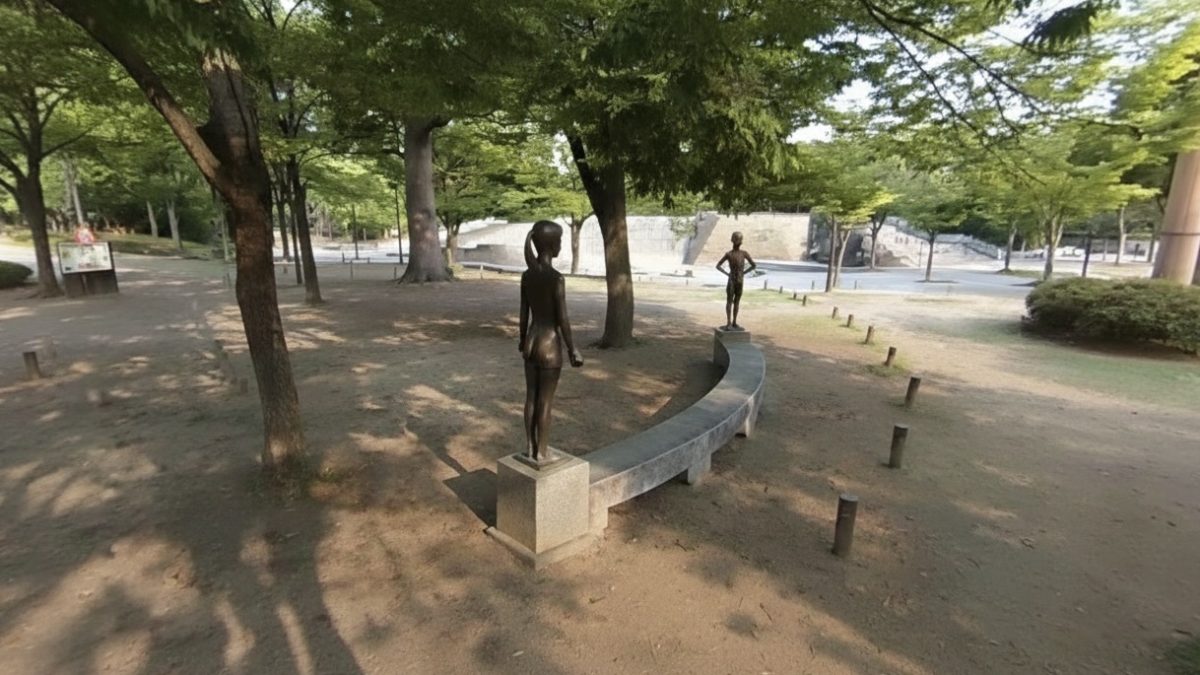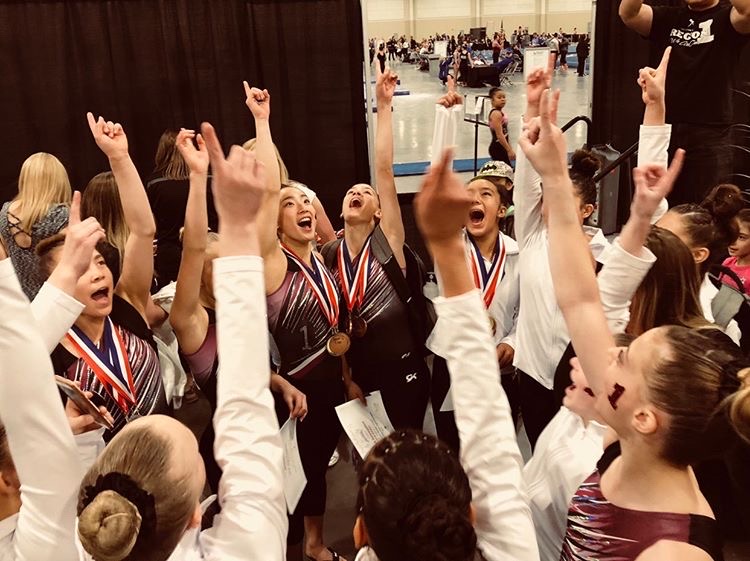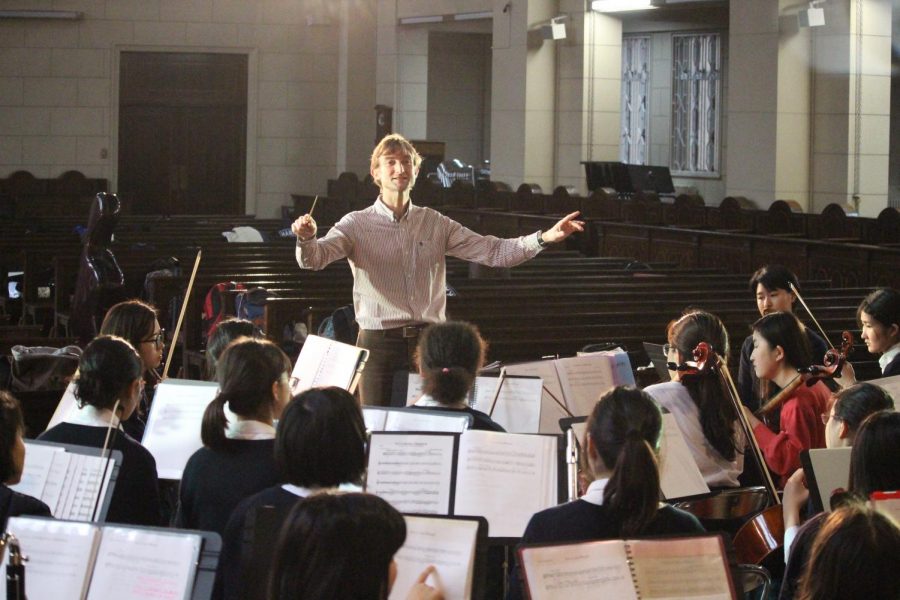Behind the scenes of the ISSH music department
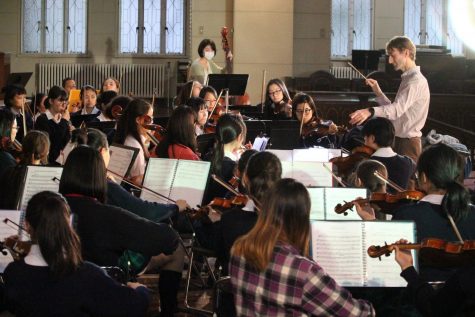
2018—This year many students have exclaimed that the Sacred Heart Music Department has transformed: four movements from Handel’s Messiah, choir and orchestra collaborations, auditions, extended rehearsals, and unique vocal technique exercises.
We were able to interview the directors of the orchestra and choir, Mr Nicholson and Ms. Horn for more details on these changes.
Why did the Music Department suddenly decide to make so many changes?
Mr. Nicholson: If you’re referring to the auditions for the 0rchestra, this decision was made in order to address the issue of the growing ability gap between the younger and older members. During the last 10 years, the 0rchestra membership has grown from 30 players to over 80, and we felt it was losing its ability to challenge and motivate the older and more experienced musicians. Younger players, it was felt, would have the opportunity to play in the group after they had reached a desired level of skill, and the overall quality of the group would improve as a result.
Unlike the choir, the orchestra does not meet during the school day and is actually more like an after-school club. Given the limited rehearsal time for each performance, having a more homogeneous group in terms of ability just seemed to make sense.
Ms. Horn: I looked at where the singers were, their abilities, and decided what repertoire to do depending on how ready they were to move onto the next level. I see a lot of ability and potential in our choir so I want to try and bring the best out of the choir and do what we can. This is why we work on our weaknesses and basics such as breath support and control by leaning against a wall and doing physical exercises. Working on our vocal technique is extremely important for anybody in a choir as it helps us create the music we strive for.
I definitely think that the strength of our students as singers is that they actually enjoy singing, especially our vocal ensemble—there are many talented singers. Usually, a lot of schools struggle with simply trying to find people to join a choir. However, we don’t have that problem as there are many people who are willing to join this extracurricular.
The choir’s main weakness is creating expression and maintaining expression as we sing as well as our vocal technique. Improving both factors really helps you to create a stronger sound—not louder, but strong and healthier.
Why are we doing the collaboration?
Mr. Nicholson: I like collaborations. They challenge musicians to listen more carefully and to be sensitive to issues such as balance, style and the need to focus on the conductor! The last collaboration we did was in 2013, when we performed Vivaldi’s “Gloria” with the Orchestra, MS Choir, and HS Choir. That same year we actually were invited to perform this work at Tokyo’s well-known Suntory Hall, which was a thrilling event for the students and teachers. Collaborations bring musicians together, and ‘up the ante’ of the creative process. They are a lot of work, which is why we don’t make them a regular feature of the program every year. Getting ready for this year’s performance of selected movements from Handel’s “Messiah” has been a lot of fun. It’s interesting to keep in mind we are learning music first composed and performed almost three centuries ago—I find a strange kind of connection with the musicians who encountered this new piece in 1742, and imagining their reactions and experiences.
Ms. Horn: I generally like collaborations. I’ve done collaborations in the past with other schools. For you girls, it would be an experience that enriches your musical and choral experience. It is challenging for choirs to perform with the orchestra as it requires a strong, open and clear tone. It is easy to forget that the the lyrics are the biggest distinction between the orchestra and the choir and as singers we forget that singing requires a lot clearer diction than speaking in order for the audience to understand what we are singing. Many schools will perform the Handel Messiah movements but not all will have the opportunity as you girls do, to have an orchestra to perform with. This will also be my first time, after many years of teaching, having my choir perform this piece with an orchestra.
What are you planning on doing next?
Mr. Nicholson: Ms. Horn and I are always discussing new pieces that we could do together, and I have a pages-long list of orchestra music that I would love to hear the Sacred Heart Orchestra perform before I leave! Students often request to play pieces that we have done in past years, like “The Snowman”, Ghibli selections, “Phantom of the Opera”, and I sometimes give in. But there really is no end to the choices for this group, and I can’t really imagine scratching my head and not knowing what to do next.
Ms. Horn: I believe that there is much more we can do by striving for the next level. There is so much great repertoire out the for women’s choirs and with the groups that I am currently conducting I feel like I can really do anything I want! There is no bigger freedom for a choir director than to be able to do pretty much any repertoire. Of course variety is important and I would like to get you girls to feel comfortable singing any music genre in any language, even German or Latvian.
What do you see are some of the strengths of the music department here at ISSH?
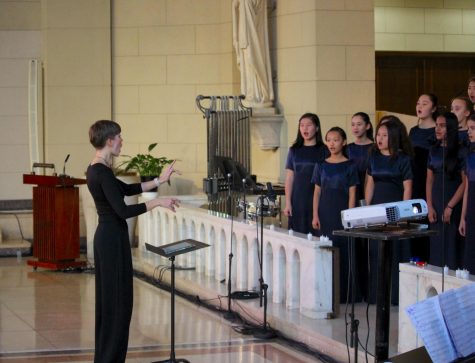
Ms. Horn: As a whole, the music department is very exceptional. It prepares the girls well to be where they should be by the end of the year. I used to teach AP Music Theory so I know where students are meant to be by certain times of the year and this department is great for those who want to take music theory, as Mr. Nicholson offers accessibility to what’s necessary, such as music theory material. I also think that it is amazing to have students who always strive to do their best and take pride in being a part of our ensembles. Most rehearsals and all of our concerts happen after school and it is a big commitment to be a member of any of our ensembles, that’s why it’s even more impressive that so many girls decide to do it.
Mr. Nicholson: One word: students! Well, the students and their parents. We have so many girls who are from families where music is valued and supported. About half of our Sacred Heart students currently take, or have taken, piano lessons or some other form of private instrumental instruction. There is a shared respect for the musical process and a desire amongst the students to express their musical voices as part of an ensemble. There is a feeling of pride and community that comes from making music together; it’s not goal-oriented in the same way academics are, or at least the goal is something harder to define. At a time when arts programs are being defunded in many schools across the world, at Sacred Heart we are supported and encouraged to continue with courage and confidence.


